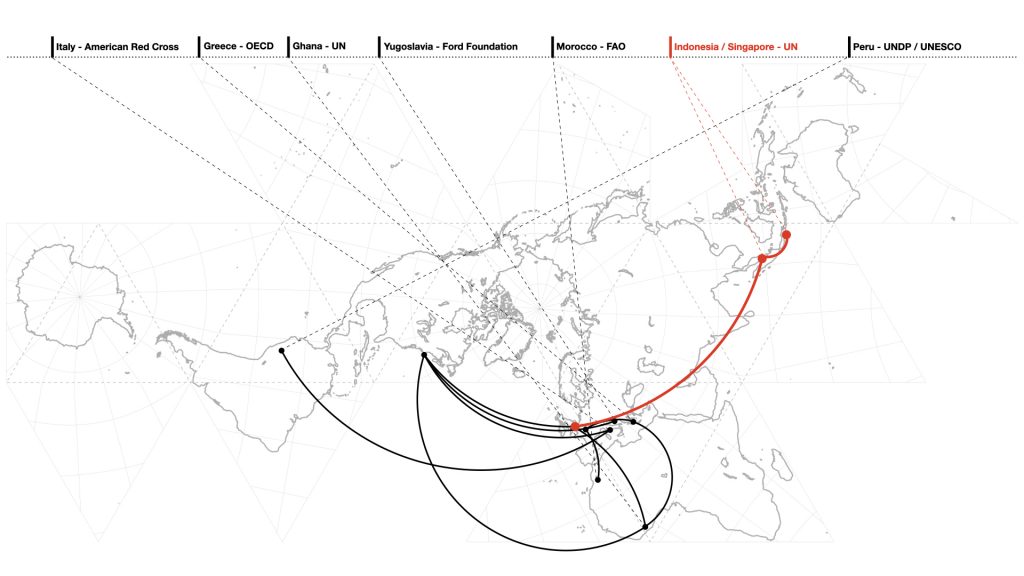Experts, Exports, and the Global Entanglements of Postwar Planning

Paola Zanotto (Independent Researcher) Global Cities in the Making: Jaqueline Tyrwhitt’s Work Between Harvard, Bandung and Singapore
In just a few years, between the end of the 1950s and the beginning of the 1960s, two very different cities went through a period of transition and reforms, making a landmark in the process of urban modernisation in Southeast Asia. Singapore embarked on a radical urban renewal project, where large parts of the city were completely transformed to accommodate the emerging economic and population growth. This encouraged a creative debate to discuss issues related to the physical planning and development of the city state. Such a debate led to the creation of different think tanks such as the Singapore Planning and Urban Research Group (SPUR), and was followed by a period of vast amounts of foreign capital invested and massive infrastructure building.
In Indonesia, the School of Regional and City Planning was founded in a newly independent institution called Institut of Teknologi Bandung. The first of this kind in the region, the school was founded in response to the need to establish a local planning education system after many Dutch experts left the country following the end of the colonial age. In both cases a strong influence came from the United Nations experts and investments. Looking at the history of the modernisation and internationalisation of urban planning in Bandung and Singapore, it’s essential to look in particular at the work of a UN advisor who played a very influential role in bridging eastern and western culture. Her name is Jaqueline Tyrwhitt, a British town planner, educator and editor. In both occasions she acted as a key facilitator in the making of transnational networks that involved global experts, local planners and academics. The evolution that affected the two cities will be retraced through the collaboration facilitated by Tyrwhitt between different institutions, the emerging partnership between Harvard University and the United Nations, and the legacy that these collaborations left behind them.


